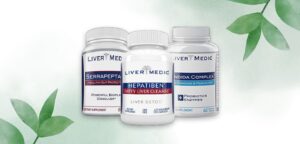
We are going to attempt to define IBS here and help those suffering with it by suggesting some highly effective natural solutions. You might be reading this now because you or someone you know has one or more of the following symptoms; abdominal pain, cramping, diarrhea, constipation and gas to nausea.1
Often those with IBS will be diagnosed with leaky gut. There is a high degree of overlap between these two. There is also a high degree of overlap with leaky gut and fatty liver. Therefore, it’s not uncommon to have all these taking place at the same time because it is a pathological progression. This can sometimes confound physicians when all these symptoms present simultaneously. But for this discussion, let’s just focus on IBS.
“IBS is a common condition effecting about 25% of Americans on a daily basis and up to 70% periodically.”
IBS is not inflammatory bowel disease (IBD) or Crone’s disease. They are closely related and can be very difficult to tell apart. Though doctors are not sure of all its causes, most agree that it can be triggered by; chronic stress, a low fiber diet, caffeine, alcohol, dairy, artificial sweeteners, prescription drugs, intestinal flora imbalance or a recent infection. 2
Stress and diet appear to be the main drivers. This could be in part because our brains are directly connected to nerve endings in the highly vascularized intestinal tract. Signals from the brain are sent to the gut during stressful periods. This is often described by those afflicted as having a pit in the stomach or a gut feeling. This refers to the secretion of a cortisol stress hormone and epinephrine or norepinephrine. 3
Diet certainly plays a role and to understand it we need to discuss the American diet, which has changed significantly over the past fifty plus years. Americans now consume more of the following; sugar, caffeine, harmful fats, antibiotics, preservatives, pesticides, GMOs, and hormones. These are all considered toxins to your body –especially sugar.
In fact, sugar is the major reason for the build-up of candida; known to displace good bacteria. Why are we discussing the digestive tract? What does that have to do with obesity? Everything!
THE DIGESTIVE TRACT HAS A VERY COMPLEX FUNCTION AS IT SIMULTANEOUSLY DOES TWO OPERATIONS:
- Creates specific enzymes to breakdown digested food into smaller particles absorbed by the body.
- Selectively allows those nutrients to pass withough alonging harmful invaders; viruses, bacteria, and toxins to come along with them.
Our digestive tract is not alone in this work; it has between 3-5 lbs of bacteria in the gut to help. It’s the new American diet that’s currently accelerating the rapid growth of harmful bacteria.
LEAKY GUT
When the increase in harmful bacteria and yeast (candida) within the intestine reaches a tipping point, the intestinal wall is breached. This breach allows food particles to pass through the intestine wall and the immune system becomes overwhelmed. The liver, which receives 70% of its blood flow from the intestine, is charged with detoxify the blood. If the necessary chemicals (i.e. Glutathione, NAC, Tocotrienols) are in short supply the liver simply shuttles the toxins into fat cells to keep them from invading the rest of the body. These fat cells are stored in the liver and elsewhere throughout the body. 4
The best way to counter this cycle is finding ways to alleviate stress by changing your diet and supplementing it with probiotics and strong liver antioxidants.
Our customers experience the best results by initially starting with Leaky Gut Repair and incorporating Hepatiben in the regimen about two weeks in. Most doctors recommend staying on most for about 2-3 months, but results can be felt as little as 24 hours after first taking Leaky Gut Repair.
additional Posts

Harnessing the Power of Fitness in Your Journey Toward Addiction Recovery
Written by: Susan Treadway of Rehab Holistics Embarking on the path to addiction recovery unveils a myriad of challenges and opportunities. One potent yet often underestimated ally in this journey is fitness. Through the transformative power of physical activity, you

Is it Possible to Reverse Fatty Liver with Natural Remedies?
Is it possible to reverse fatty liver through natural remedies? This is a common question, especially as fatty liver disease becomes increasingly prevalent. The liver, one of the most vital organs in the body, plays a key role in detoxifying,
7 Best Liver Detox Remedies
Are you looking to revitalize your liver health but overwhelmed by the myriad of options available? Wondering if liver detox remedies are really effective, especially when you are already taking supplements? Let’s delve into the world of best liver detoxification
Do Liver Detox Supplements Help Fatty Liver?
Have you ever wondered if liver detox supplements can truly make a difference for fatty liver? With the rise in health consciousness, many turn to supplements for various health concerns. But do they really work when it comes to combating

Which is the Best Liver Supplement for Fatty Liver?
Are you experiencing fatigue, abdominal discomfort, or unexplained weight gain? These could be signs of a fatty liver, a condition affecting millions worldwide. With lifestyles often characterized by poor dietary choices and sedentary habits, the prevalence of fatty liver disease

How Can I Detox my Liver in 7 Days?
Have you ever felt like your body needs a reset? Perhaps you are experiencing low energy levels, bloating, or just a general sense of malaise. If so, your liver might be trying to tell you something. Could a 7-day liver